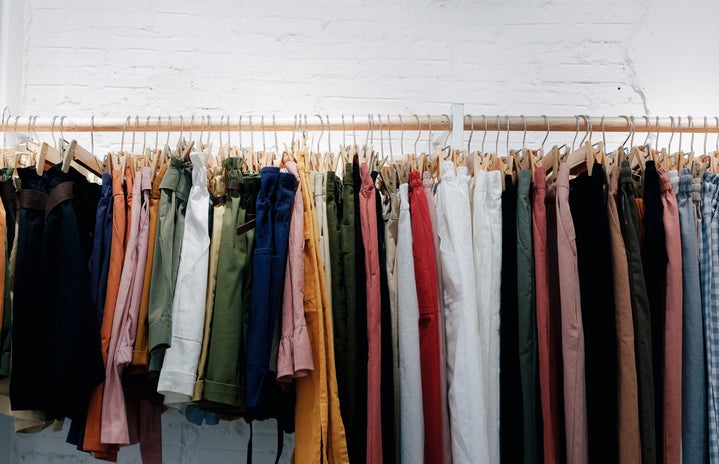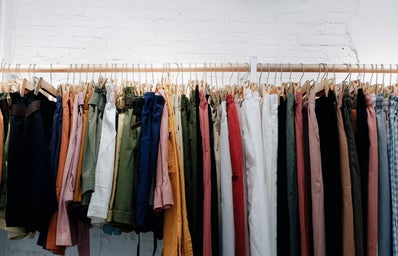It’s no secret that the fashion industry, and in particular fast fashion shops, has a lot of issues regarding sustainability and ethics. In response, many consumers have moved to supporting slow fashion businesses and shop second-hand. These are great alternatives that should be observed as much as possible; however, it is important to recognize the barriers that some people can face if trying to follow more sustainable and ethical shopping practices. In particular, these options can largely exclude plus and midsize people.
Slow fashion as a concept is about creating products that are made to last; applying this concept to fashion, it’s about utilizing durable fabrics with low environmental impact to produce in order to be more sustainable. Slow fashion brands tend to operate on a smaller scale than their fast fashion counterparts, opting to manufacture their clothing in small local factories rather than overseas where workers are frequently exploited. This is to be commended – the way slow fashion brands produce their lines is far more sustainable and ethical. Where the problem lies is that due to the limited manpower backing slow fashion brands, their size ranges are less inclusive than the size ranges of fast fashion brands. Brands will often start off by offering sizes S-L and promising to expand that range in the future, once they become more well-established. Unfortunately, it has been my experience that brands often use this as an excuse to justify their exclusivity after being called out, and don’t always follow through on their promises later on. This means that plus size and even mid-size people have a smaller selection of slow fashion stores from which they can shop from.
The other common alternative, second-hand shopping, isn’t much better. Like slow fashion, second-hand shopping is great in theory – it gives pre-loved clothing a second life, saving tons of discarded clothing from landfill and keeping consumers from buying new clothing that will be out of style in less than a month. However, second-hand shops don’t typically have a huge stock of plus size clothing getting donated to them; certainly, not enough to meet demand. Making matters worse, it’s currently really trendy to wear clothing that has an oversized fit or rework clothing into new pieces, which has thinner people venturing into the XL+ sections and making it harder for plus size people to find quality clothing that fits them.
I’m not saying that supporting small fashion brands is bad, nor am I saying that people should stop buying their clothes second-hand. I understand why people are passionate about these choices, and I think that as this movement grows, it can be a real viable solution for issues in the fashion industry. What I really mean is that we need to be considerate of the barriers that exist when presenting these options as the all-encompassing perfect alternatives to buying from fast fashion brands. Until the necessary steps are taken to include plus size people in its more sustainable and ethical options, redirect your anger towards the fashion industry that actively excludes them. Plus size people should not be made to feel ashamed for trying to make due in an industry that does not work hard enough to serve them.


